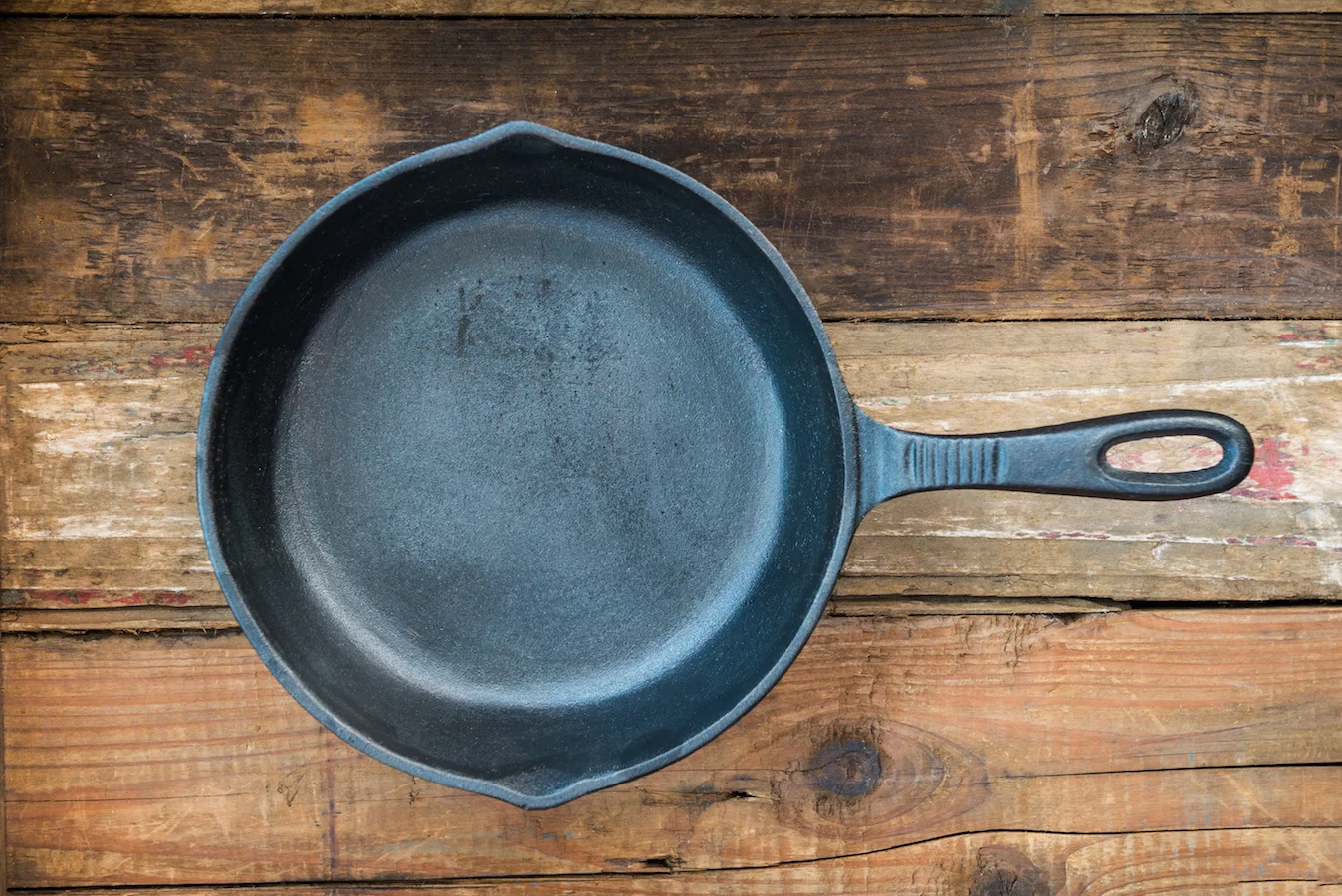Should You Ditch Teflon for Cast Iron Pans?
Anything labeled “nonstick” that has been coated with a slick, chemically-formulated coating, such as Teflon. Prior to 2013, Teflon was formulated with PFOA – a chemical the World Health Organization has labeled “possibly carcinogenic to humans.” But, Teflon is no longer made with PFOA, but nonstick coatings are still chemically-formulated. Chemicals aren’t inherently bad, though, so don’t hit the panic button yet.
These chemicals can break down at high temperature, and can end up producing toxic fumes you may inhale or getting into the food you’re about to eat. Most studies have found the release of these non-stick chemicals during cooking is minimal or only occurs at temperatures hotter than what most home kitchens are capable of producing, i.e. greater than 570 degrees F.
Unfortunately, nonstick cookware is easily damaged by metal utensils and regular wear and tear. If you notice scratches, chips, or flaking in your nonstick cookware, chances are the function and safety of your pots and pans have been compromised, so toss them.
Why I Think You Should Switch to Cast Iron
The best cookware is cast iron – yep, just like that beat-up ‘ol skillet that Grandma used! Here are the top benefits of switching from nonstick cookware to cast iron:
It’s durable and long-lasting. Cast iron doesn’t chip or scratch like nonstick cookware.
It gets good ‘n hot and then retains the heat – great for keeping food warm if you serve food straight from the pan!
It’s affordable. You can score a standard 10-inch cast iron skillet for $15-$20.
It’s versatile to just about any type of cooking you want to do. You can bake, fry, sauté, roast, grill, sear meat, and braise in a cast iron pan. Think of all the cabinet space you can save with a couple of trusty cast iron pans on hand!
A well-seasoned cast iron pan is naturally nonstick, meaning you can still cook with less mess and less fat - just like other nonstick cookware! Seasoning means oil that has been baked into the iron. The more you use cast iron, the more “seasoned” it becomes. The best way to keep your cast iron pans clean and seasoned for years of nonstick cooking is to rinse with warm water, dry thoroughly over low heat on the stove, and then rub a bit of plant-based oil onto the pan with paper towel.
Cooking in cast iron fortifies your food with a bit of extra iron, which is especially important since iron deficiency is one of the most common nutrient deficiencies. A 2013 study found foods cooked in cast iron had a 16% increase in iron content compared to the same foods when cooked in Teflon pans.
FYI - iron is important for healthy blood cells. It’s a part of red blood cells and hemoglobin, which are responsible for carrying oxygen through the body.
Getting enough iron from food is especially important for vegans and vegetarians who don’t consume heme iron - the most absorbable form of iron found in animal foods.
So, consider switching to cast iron cookware for improved durability and taste!




